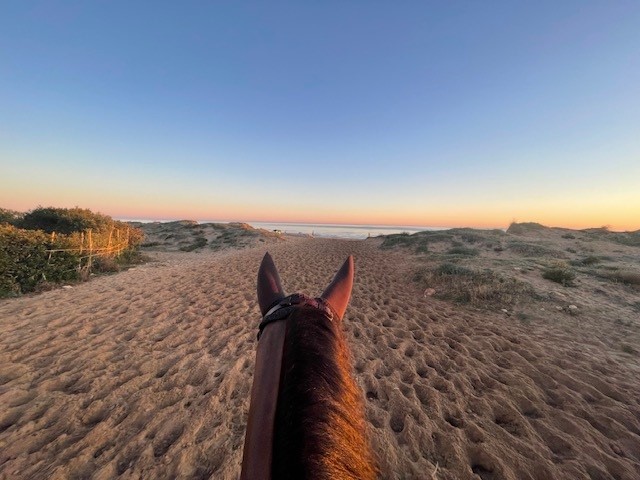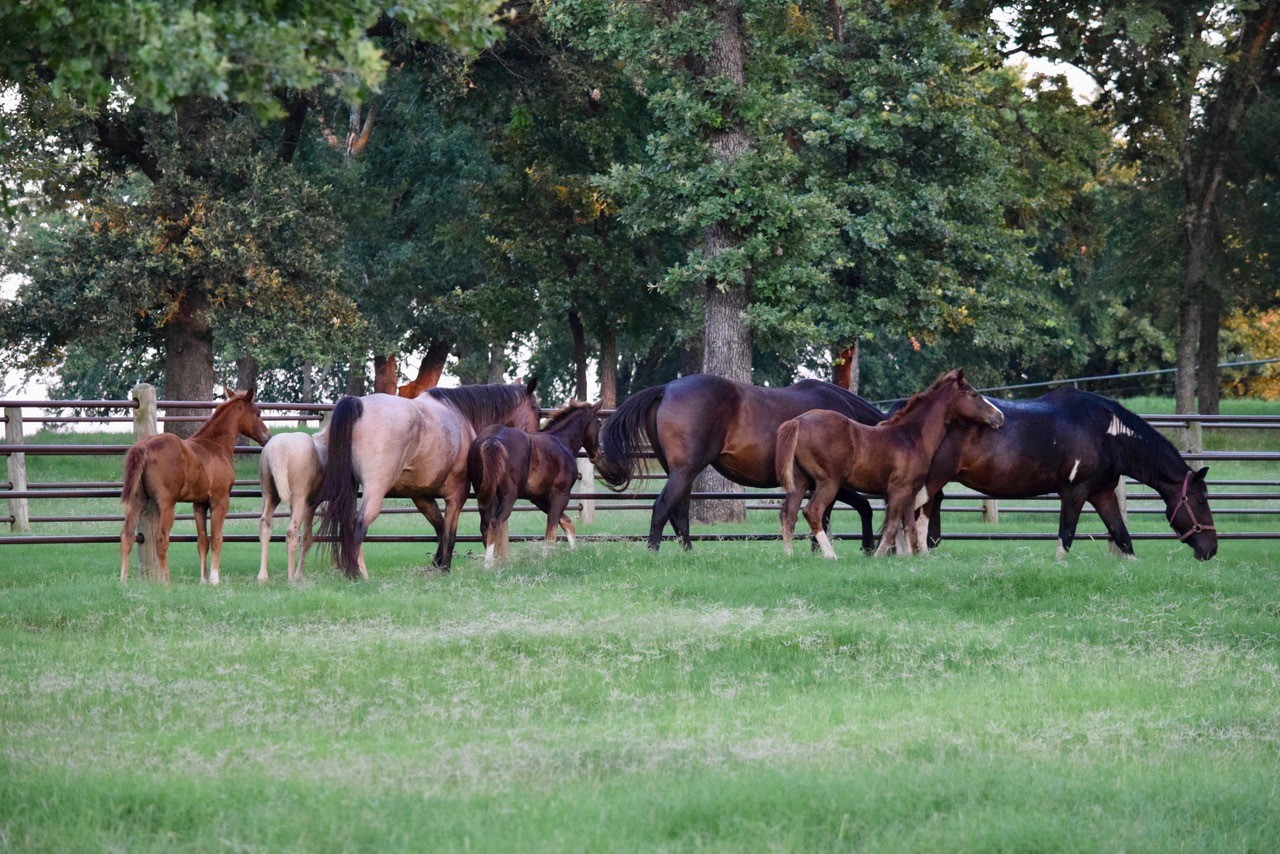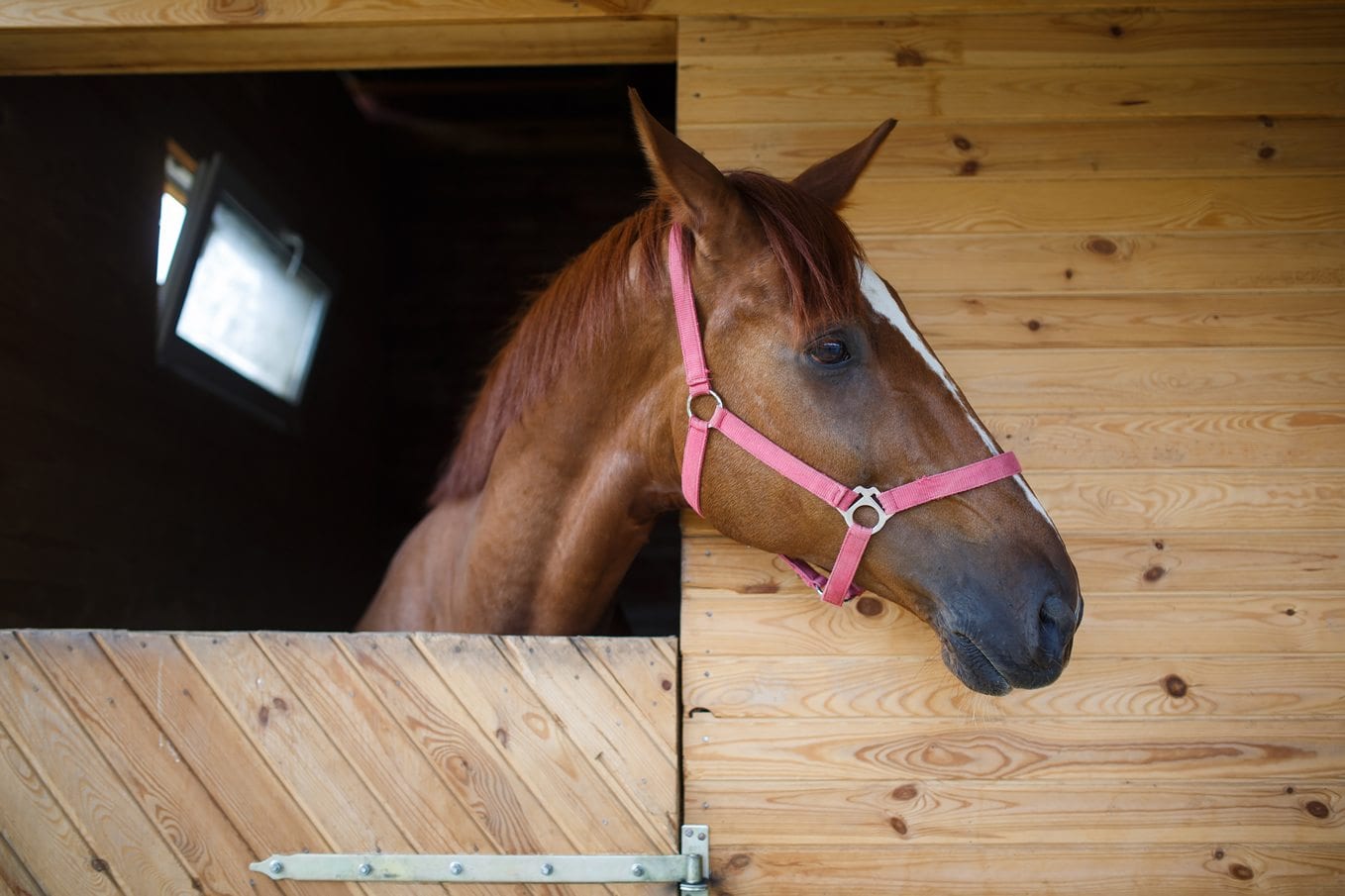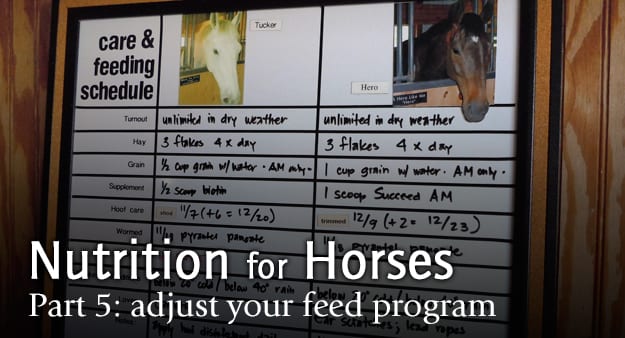
Understanding the Horse Factors, Diet Factors, and Feeding Factors that impact a horse’s unique nutritional needs is essential to developing a feed program that results in a healthy horse capable of performing at its best. In the final part of this series on nutrition, we’ll put all the factors together to give you the tools you need to evaluate and revise your feeding strategy with your vet or nutritionist. This series is adapted from a model produced by the American College of Veterinary Nutrition. Read more about the three factors in parts 1–4 of this series. Subscribe to the SUCCEED blog for ongoing health and nutrition updates.
What You Feed
In Part 2: Horse Factors of our series we helped you evaluate the factors that influence your horse’s needs, including:
- Breed
- Body type and weight
- Age
- Breeding status
- Performance and training schedule
All of these factors influence what and how much you will feed. Once you’ve determined these factors, plug them into the National Research Council’s Animal Requirements chart to find an appropriate starting place to evaluate nutrient and energy requirements.
In Part 3: Diet Factors, we broke down the six essential nutrients for good health and where to find them. We recommend emphasizing fibrous carbs and getting a healthy balance of the other nutrients for good health. You should be able to answer the following questions:
- Is my horse’s feed appropriate and safe?
- Is he getting the necessary nutrients in the right amounts to meet his particular needs?
- Is it meeting nutritional needs without negatively impacting digestive health?
- What changes do I need to make to what I am feeding as a result of my evaluation?
How You Feed
In Part 4: Feeding Factors, we looked at how your feeding schedule and your horse’s environment can influence his nutrition. We recommended mimicking the natural feeding pattern of horses in the wild — slow and steady foraging — as closely as possible to achieve the best nutrition. You should be able to answer the following:
- How close is my feeding management to the ideal?
- Where can I make changes to make it better?
- Where might I have to compromise due to limited time, money or resources?
Why It’s Important
Your horse’s nutrition and digestive health has the ability to impact everything. Gut health. Overall health. Behavior. Physical ability. Performance. When a horse isn’t getting the nutrition it needs, it can result in serious risks to digestive health. Even minor issues in any of the above can lead to poor nutrition that will affect behavior and performance.
Practical Steps You Can Take
While striving to meet the ideal — slow and steady ingestion of the appropriate nutrient available naturally — take steps to mitigate the factors you can control.
Review the NRC suggested minimum nutrient amounts for your horse. (Remember that these numbers will change with exercise intensity and with the change of seasons.)
Send a hay/pasture sample to your local agricultural extension to have it tested for nutritional content based on horses’ (not cattle) needs.
- Read your feed labels and understand what you’re feeding.
- Change the elements of management over which you have control.
- Adjust amounts of feed to meet your horse’s needs, and prioritize forage.
- Support nutrient absorption and healthy gut function with SUCCEED.
It may be impossible to control every single aspect of your horse’s nutrition, but by focusing on the things you can control and making sure your horse’s digestive system is as healthy as possible, you’re one step closer to a healthy, happy horse. Take the SUCCEED Challenge to see the difference for yourself.
This series was reviewed separately by two independent experts. One is a board-certified veterinary nutritionist who wishes to remain anonymous. The other is Juliet M. Getty, Ph.D. an equine nutritionist, writer, consultant and speaker. Dr. Getty currently serves as a panelist of the Equine Sciences Academy and formerly as contributing nutrition editor for Horse Journal.
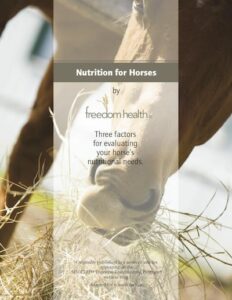 Get Your Free Nutrition for Horses E-Book
Get Your Free Nutrition for Horses E-Book
Did you find this article helpful? Download your free copy of the Nutrition for Horses e-book and take the whole series home with you as a printable PDF to read and share at your leisure.
Register Now to Access Your Free Download:
Already a member? Login in here to access our E-Book Library.

